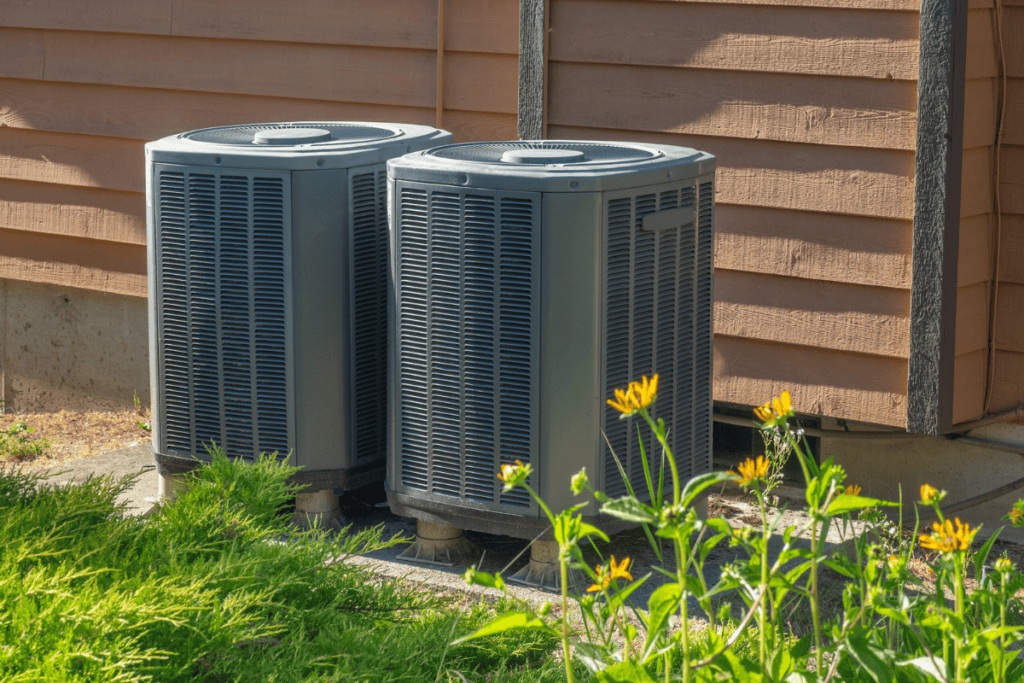In the scorching heat of a Texas summer, your air conditioner becomes your most precious ally. As temperatures soar into the mid to late 90s (°F), the relentless sun beats down on your home, turning it into an unbearable oven. But with the cool relief of your AC unit, you can find sanctuary from the oppressive heat and humidity.
However, have you ever stopped to think about how long your air conditioner can withstand the brutal Texas climate? The lifespan of an AC unit in the Lone Star State is a critical factor to consider, especially when planning for maintenance and eventual replacement.
The harsh reality is that the extreme weather conditions in Texas take a heavy toll on air conditioning systems. The constant strain of battling the intense heat and humidity can wear down even the most robust units, leading to reduced efficiency and potential breakdowns.
In this article, we’ll explore the factors that impact the lifespan of AC units in Texas and provide expert insights on how to maximize the life expectancy of your air conditioner. From regular maintenance to smart usage tips, we’ll equip you with the knowledge you need to keep your home cool and comfortable, no matter how high the mercury rises.
Contents
Average lifespan of AC units in Texas
In the harsh Texas heat, homeowners often wonder how long their AC units can withstand the constant strain of keeping their homes comfortable. On average, air conditioners in Texas typically last between 10 to 15 years. However, the lifespan of an AC unit can vary depending on several factors, such as the quality of installation, regular maintenance practices, and the frequency of use.
To maximize the life expectancy of your air conditioning system, it’s crucial to schedule professional maintenance at least once a year. During these tune-ups, an HVAC technician will thoroughly inspect your unit, clean the coils, check the refrigerant levels, and address any potential issues before they escalate into costly repairs.
Factors affecting the lifespan of AC units in Texas
1. Climate conditions
Texas is known for its diverse climate, with most regions experiencing hot and humid summers that can put immense stress on AC units.
The combination of high temperatures and humidity forces air conditioners to work harder and for longer periods, leading to increased wear and tear.
This constant strain can significantly impact the lifespan of an AC unit, making it essential to consider the local climate when selecting and maintaining your cooling system.
2. Frequency of use
In the scorching Texas heat, air conditioners often run continuously to maintain a comfortable indoor environment. The more frequently your AC unit operates, the more strain it endures, potentially shortening its lifespan. Heavy usage patterns require diligent maintenance and occasional repairs to ensure optimal performance and longevity.
3. Maintenance
Regular maintenance is the key to prolonging the life of your AC unit in Texas. Neglecting essential tasks like replacing air filters, cleaning the coils, and checking refrigerant levels can lead to reduced efficiency, higher energy bills, and premature system failure.
By scheduling annual professional maintenance and performing basic upkeep yourself, you can help your air conditioner last longer and avoid costly breakdowns.
4. Quality of installation
Proper installation by a skilled HVAC technician is crucial for ensuring your AC unit operates efficiently and reliably from day one. A poorly installed system can result in various issues, such as inadequate cooling, frequent repairs, and shortened lifespan. Always hire a reputable and experienced professional for your AC installation to give your unit the best chance of reaching its full life expectancy.
Common Signs Your AC is Failing
As your air conditioner approaches the end of its life, you may notice several warning signs indicating it’s time to repair or replace your unit. These signs include:
1. Reduced cooling performance
If your AC struggles to keep your home comfortable or takes longer than usual to reach the desired temperature, it may be nearing the end of its lifespan.
2. Unusual noises
Grinding, squealing, or rattling sounds coming from your AC unit can indicate worn-out components or a compressor that’s on its last legs.
3. Increased energy bills
A sudden spike in your electricity costs without any change in usage could mean your air conditioner is losing efficiency and working harder to cool your home.
4. Frequent breakdowns
If you find yourself calling for AC maintenance more often than usual, it may be more cost-effective to invest in a new system, ensuring reliable cool air.
5. Weak airflow

6. Increased humidity
An efficient AC unit should maintain indoor humidity levels between 45 and 55 percent. If your home feels sticky and humid, your air conditioner may be struggling to remove moisture from the air.
Tips for extending the lifespan of AC units in Texas
1. Regular maintenance
To keep your AC unit running efficiently and extend its lifespan in the harsh Texas climate, regular maintenance is crucial. Schedule annual tune-ups with a professional HVAC technician who will clean or replace air filters, inspect ductwork, lubricate moving parts, and check refrigerant levels. By catching and addressing potential issues early, you can prevent costly repairs and premature system failure.
2. Proper installation
Investing in professional installation by a certified HVAC technician is essential so that your AC unit operates at peak performance from day one. A properly sized and installed system will experience less wear and tear, reducing the likelihood of breakdowns and extending its lifespan. Don’t try to cut corners with DIY installation or hiring an unlicensed contractor, as this can lead to inefficiencies and shortened equipment life.
3. Use of programmable thermostats
Upgrading to a programmable thermostat can help you optimize your AC unit’s performance and longevity. By precisely controlling indoor temperatures based on your schedule and cooling needs, you can reduce unnecessary strain on your system. Smart thermostats can save you money on energy bills and give your AC unit a break during cooler periods, ultimately prolonging its life. They save 10–15 percent of energy needs while improving comfort and convenience.
4. Protection from weather elements
In the scorching Texas heat, your outdoor AC unit needs extra protection to prevent overheating and damage.
Install a shade structure or use a protective cover to shield the unit from direct sunlight and debris. This simple step can help your AC system last longer by minimizing exposure to harsh weather conditions and preventing excessive wear and tear on its components.
Replacement Vs Repair
When deciding whether to repair or replace your AC unit, consider the “5,000 rule.” Multiply the age of your unit by the cost of the repair. If the result exceeds $5,000, it’s generally more cost-effective to replace the entire system. This is especially true if you find yourself frequently repairing the same issues.
However, if your AC unit is relatively new (less than five years old) and only requires occasional repairs while still providing reliable cooling, a replacement may not be necessary.
A professional HVAC technician can help you assess your system’s condition and determine the best course of action based on your specific situation.
Contact HVAC Angel for Quality Air Conditioner Service
At HVAC Angel, we understand the importance of keeping your home comfortable in the Texas heat. That’s why we partner with several licensed HVAC companies in various cities, tx to provide top-notch air conditioning services throughout the state.
Our technicians are EPA-certified and have the expertise to handle all your HVAC system needs, from routine maintenance to complex repairs and installations.
When you call us at [phone number] and enter your zip code, we’ll connect you with a trusted AC technician in your area who can help you maximize the lifespan of your unit and make sure it runs efficiently for years to come.
Don’t let the Texas climate get the best of your air conditioner – trust HVAC Angel to keep you cool and comfortable all summer long.
Frequently Asked Questions
1. How much does a new AC cost in Texas?
The cost of a new air conditioning unit in Texas can vary depending on factors such as the size of your home, the type of system, and the efficiency rating. On average, homeowners can expect to pay between $3,500 to $7,500 for a new AC installation, with higher-end systems costing upwards of $10,000.
2. Is a 2 stage AC worth it in Texas?
Yes, a 2-stage AC can be a worthwhile investment in Texas. These systems offer improved energy efficiency, more precise temperature control, and better humidity management compared to single-stage units. While they may have a higher upfront cost, 2-stage ACs can save you money on energy bills and provide enhanced comfort in the long run.
3. How many hours should AC run per day in Texas?
On a typical hot Texas day, your AC unit should run for about 15-20 minutes per cycle, or 2-3 times per hour. The exact runtime of an HVAC unit will depend on factors such as the size of your home, the efficiency of your system, and the outdoor temperature in the surrounding areas.
4. What temperature is too hot for an apartment in Texas?
In Texas, the maximum allowable indoor temperature for rental properties is 80°F (26.7°C) during summer months. If your apartment’s temperature exceeds this limit and your landlord fails to address the issue within a reasonable timeframe, you may have legal grounds to break your lease or seek other remedies.

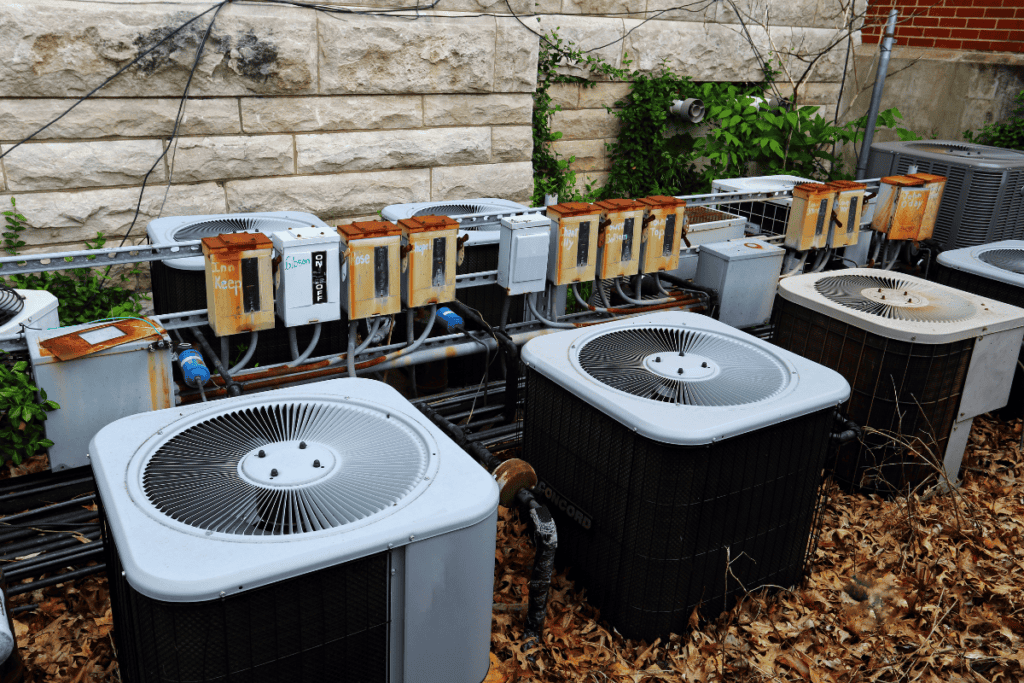

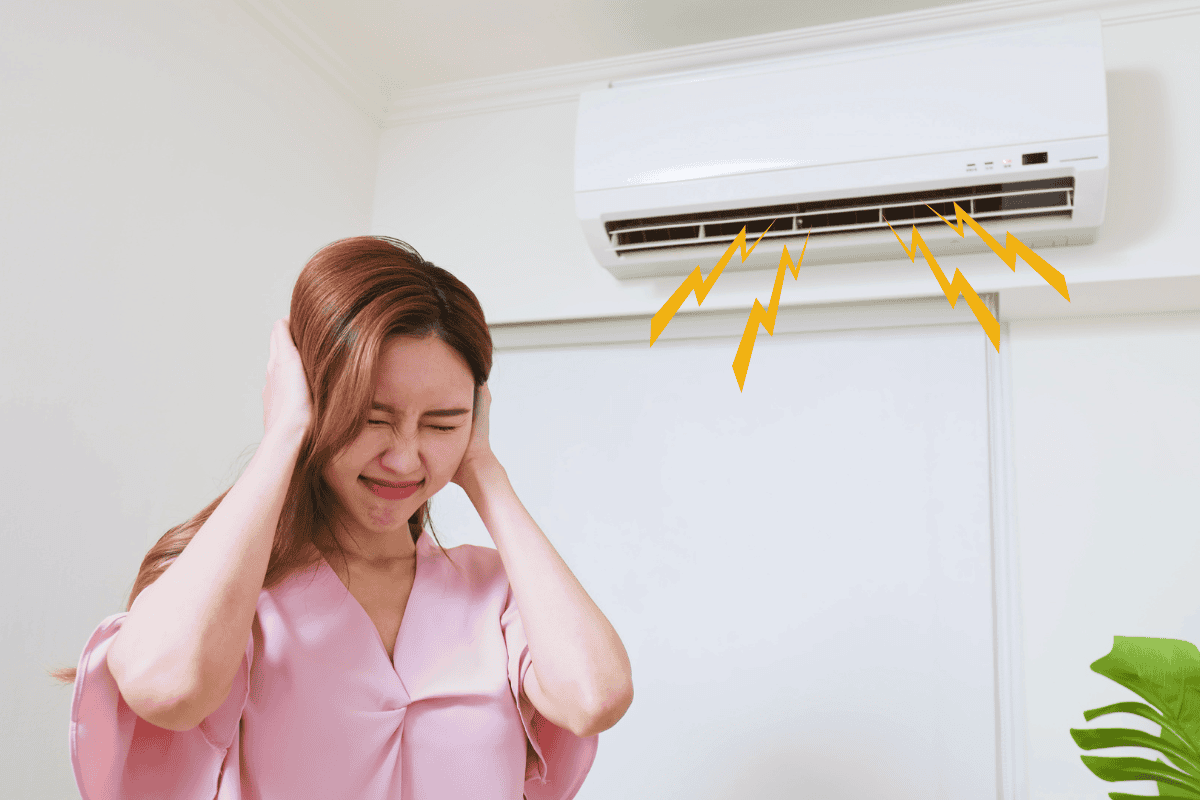
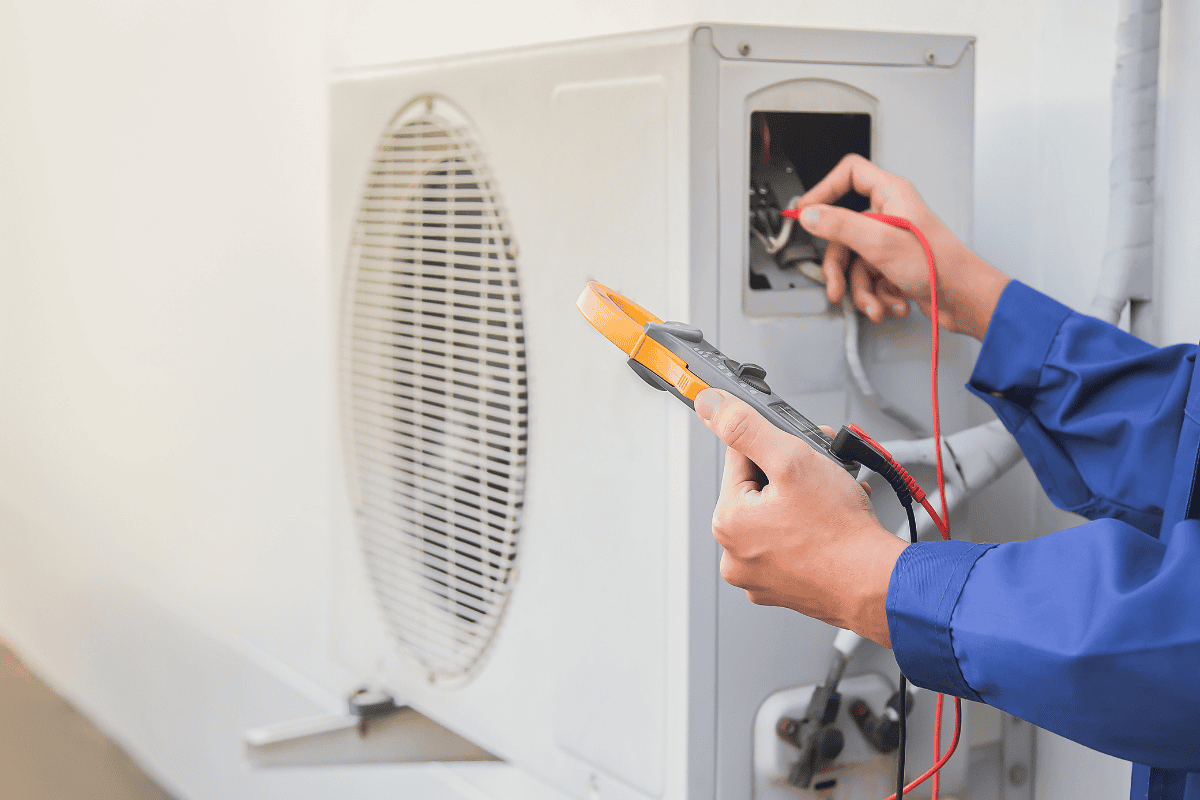
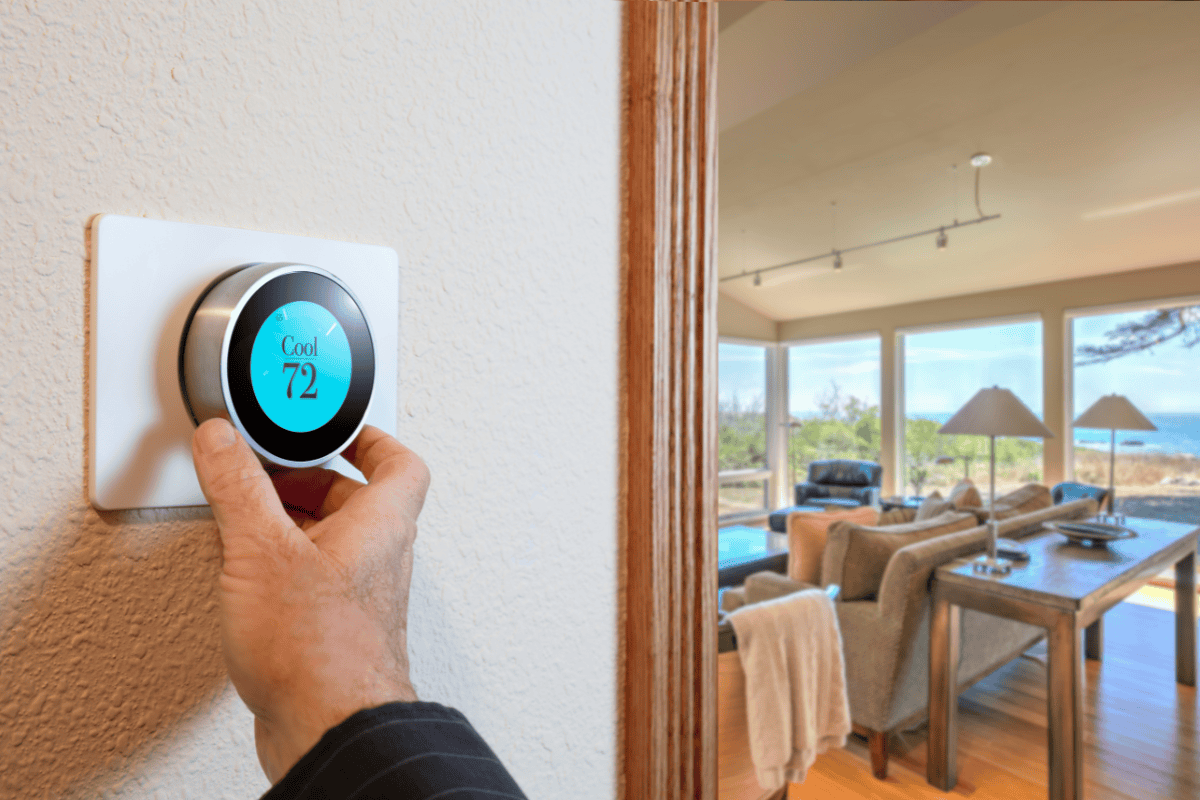
![9 Reasons That Causes an AC Unit to Freeze Up: [Troubleshooting Guide]](https://hvacangel.com/wp-content/uploads/2024/05/what-causes-a-ac-unit-to-freeze-up-1024x683.png)
